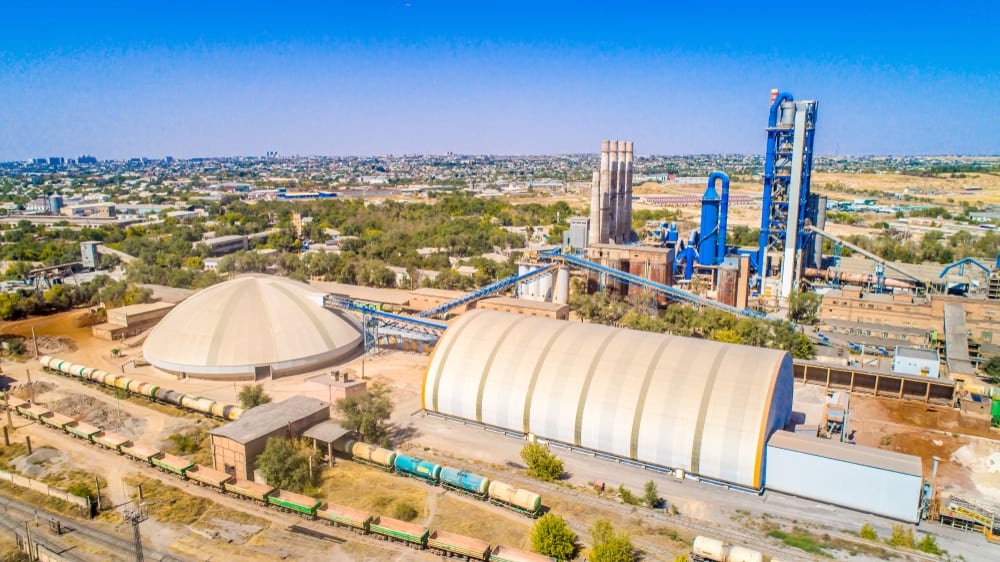
An overview of sustainable business practices in Nigeria
To achieve sustainability, it is necessary to meet the needs of the present without endangering the ability of future generations to do the same. It is an approach for incorporating substantial and authentic value into current systems.
It is predicted that Nigeria's real GDP growth rate will increase to 3.3%, making it Africa's largest economy. Nigeria is also home to a significant number of international businesses and investments.
Priority number one for any business should be ensuring its profitability and long-term existence while also meeting the needs of its numerous stakeholders. The management of businesses is obligated to engage in corporate actions and strategies that contribute to the attainment of the going concern objective.

Companies and organizations are striving to join the global stage by adhering to the requirements of stakeholders and international organizations. In their reports and activities, they demonstrate transparency and sustainability in their operations.
The manufacturing and service industries drive the Nigerian economy, and the incorporation of sustainability ethics into business approach and procedures is gradually ascending the agendas of policy makers, market regulators, corporations, and shareholders. Nigerian organizations comprise a subset of worldwide organizations.
Sustainability may be studied by protecting brand value through stakeholder participation and support, meeting regulatory duties, and marketing to a specialized market of green consumers prepared to pay a premium for products and services.
However, many directors and non-executive directors have limited experience with environmental issuers, which has a negligible effect on the sustainability reporting disclosure. The knowledge and education of a company's board of directors have a substantial effect on the company's disclosure of its commitment to sustainability.
What sustainable practices look like for Nigerian organisations?
In recent years, countries have experienced fast urbanization, increased economic and technical development, and a rise in industrialization paired with various forms of contamination of the earth's physical and biological components.
Countries have also experienced fast industrial development in recent years. More than 150,000 metric tons of plastic bottles are produced annually in Nigeria, with Lagos accounting for fifty percent of this amount.
To ensure sustainable business practices, organization leaders must develop procedures and structures to meet the needs of green practices while focusing on achieving the strategic objectives of the business.
This is essential for ensuring sustainable company practices. Businesses should avoid actions that have the potential to affect the environment, hydro resources, and forestry, and instead embrace alternative energy sources such as solar, energy-efficient light bulbs, etc.
Disclosure of sustainable business practices aids in maintaining the openness of a company's threats and potential. This helps limit negative consequences on the environment, society, and government while simultaneously increasing the brands' reputations.
Annual sustainability reports are made public by conglomerates like Dangote Ltd., as well as commercial banks and manufacturing companies. As a result, shareholders and the general public are aware of the organizations' true worth, assets, and activities.
To this purpose, we investigate the three most ethical companies in Nigeria that are working to improve the country's commercial and socioeconomic climate.
1. Sterling Bank
As a direct result of implementing sustainable practices, Sterling Bank is able to prevent credit card fraud and reduce its own carbon impact.

They include environmental management systems and social risk management systems. The firm is reducing its energy consumption on a number of fronts.
Through coordinated efforts with a recycling group and the waste management services of Lagos, the bank's garbage is recycled. It is in accordance with the United Nations' Declaration of Human Rights.
Throughout the campaign, inventive businesses will compete in a series of challenges centred on the use of recycled materials. The winner will receive one million naira, which can be used to expand their business.
Because the bank employs renewable energy, its carbon impact has been greatly reduced. Its workplaces in Nigeria and other nations utilize eco-friendlier kinds of energy.
The company has contributed to initiatives involving solar and hybrid energy sources. Currently, eight different branches of the government have implemented such policies.
Not only has the bank taken steps to improve its environmental sustainability, but also its social and financial impact. Regular updates are sent to all of the company's stakeholders, and the organization leverages social media to encourage participation.
The deposit market shares of Sterling Bank, which is 3.1%, and its capital adequacy ratio, which is 12.2%, are both outstanding.
2. Fidelity Bank
Fidelity Bank strictly adheres to the international declaration of human rights. Additionally, it is consistent with the Central Bank of Nigeria's principles about the viability of the banking sector.

These include the promotion of financial inclusion, the emancipation of women through the construction of an inclusive work environment, and the elimination of negative environmental repercussions.
The bank's objective is to ensure that all sorts of clients have access to its financial services. The company's efforts assist reduce poverty in Nigeria and contribute to the country's overall sustainable economic growth. Environmental and Social Consequences
The bank's governance procedures serve as the basis for its policies, and the bank's lending services and decisions are centred on three factors: economic viability, environmental responsibility, and social significance.
The conduct of Fidelity Bank conforms to both national and international standards. Examples include the Equator Principles, the Nigerian Sustainable Banking Principles (NSBP), and the International Finance Corporation's Performance Standards (IFC).
3. Dangote Cement
The construction and manufacturing titan Dangote adheres to ecologically friendly methods at all phases of any project's life cycle. The actions it implements will be beneficial for the community, the economy, and the environment.

This is a rare occurrence, given that the industry as a whole is responsible for massive amounts of pollution and the depletion of natural resources.
In conclusion, what services does the organization offer? The Dangote Group is committed to sustainable development through eco-friendly practices, sometimes known as “green growth.” A considerable emphasis is placed on sustaining a sustainable business culture.
The staff collects data using Microsoft SharePoint to ensure its accuracy. The corporation offers its employees a unique perk in the form of paid time off to pursue academic endeavours. In 2018, about 10,000 of its employees across all of its locations and headquarters received training.
A further example is the company's emphasis on a risk-free work environment. There are fewer accidents and extremely near calls as a result. In the interim, employees providing customer service are committed to excellence throughout value chains.
The group offers aid to small and medium-sized enterprises. Over three billion Nigerian naira was invested on 125 trucks for the company's distributors, with a five-year repayment term.
Dangote Cement, the most essential component of the firm, engages in a variety of environmentally responsible operations.
It recycles its own trash first by converting it into fuel for the generator that runs the kiln. In a second manufacturing stage, fractional mineral traces collected from waste are utilized rather than main minerals.
Conclusion
The ethics of a business will define its reputation. A company's long-term prosperity depends on its adherence to sound business ethics.
The implementation of an ethical program will develop a prosperous corporate culture and improve profits. Developing a business ethics program requires time and work, but doing so will transform lives in addition to enhancing business.
The ethics of a corporation will affect all levels of business. It will affect everyone who interacts with the company, including customers, employees, suppliers, and competitors, among others. All of these groups will have an impact on how a corporation develops its ethics. Since news may now travel faster and further than ever before, ethics is crucial.




